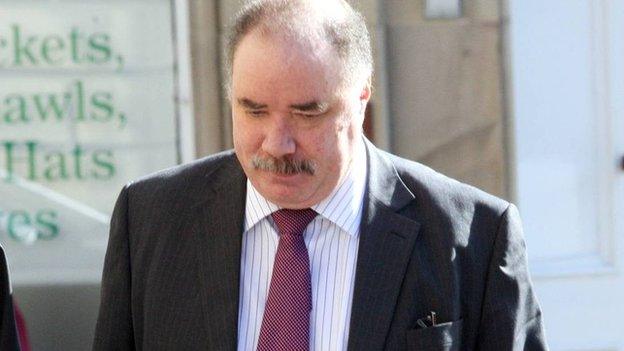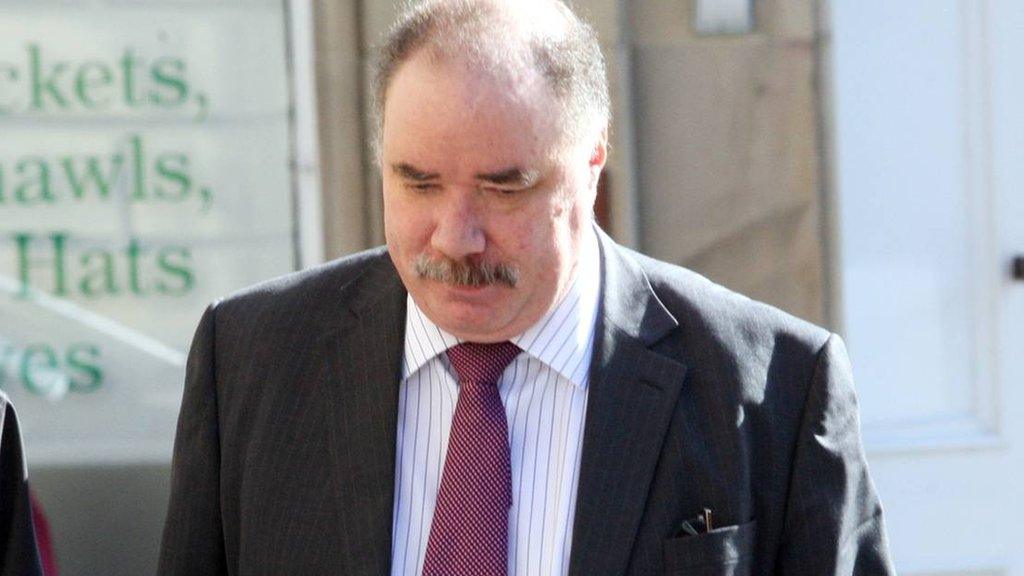Da Vinci accused Marshall Ronald's payout bid proceeds
- Published

Marshall Ronald's bid to sue the Duke of Buccleuch will go to a hearing of evidence
A judge has rejected a move to dismiss a bid to sue the Duke of Buccleuch for £4.25m over the return of a stolen Leonardo da Vinci painting.
Marshall Ronald, 57, is seeking the payout following the recovery of the Madonna of the Yarnwinder.
He was cleared in 2010 of conspiring to extort money for its return.
Lawyers for the duke described the bid to sue as "an attempt to extort a sum of money" but a judge decided it should go to a hearing of evidence.
Mr Ronald, of Upholland, Lancashire, was acquitted with others of a conspiracy to extort money for the safe return of the masterpiece at a trial at the High Court in Edinburgh in 2010.
The valuable artwork had been stolen from the Duke of Buccleuch's Drumlanrig Castle seven years earlier.
After the court case, Mr Ronald raised an action claiming that he was due payment for the return of the painting which was recovered in 2007.
At first he was suing both the duke and the police but dropped his claim against the police last year.
The duke is contesting his claims and his lawyers moved to dismiss the action.
They say the agreement Mr Ronald is seeking to rely on is "unenforceable as being illegal and contrary to public policy".
However, Lord Glennie said that it was "by no means obvious" that a "to whom it may concern" letter written as part of a police undercover operation was not meant to be taken at face value.
"It is by no means impossible to conceive of a case where, as part of a police operation to recover a painting, a reward is offered to someone who may be in a position to facilitate its recovery, and the reward is paid to that person when the painting is in fact recovered," he said.
"I accept that it is no doubt also possible to conceive of a situation where the offer of a reward is not intended to be genuine, and the letter granting authority to the intermediary to make that offer on behalf of the owner of the painting is indeed intended as a sham."
'True picture'
He added that on Mr Ronald's pleadings in the action it was alleged that the agreement was made at a time when he was not in possession of the stolen painting and did not know who had it.
"The best that can be said is that he was in a position in which he had the opportunity, through others, to pay money in the hope of procuring its release," he said.
"If this is the true picture, I can see no basis upon which it can be said that his negotiation of an agreement to be paid a handsome reward for his part in procuring the release of the painting amounts to extortion.
"It might be quite different if he himself had possession of the painting or it was within his control; but that is not what is presently averred either by the pursuer or even by the defender.
"As matters stand, I do not accept that the pursuer's case is bound to fail on grounds of illegality or public policy."
- Published5 June 2014

- Published10 October 2013

- Published24 April 2013

- Published8 February 2013
